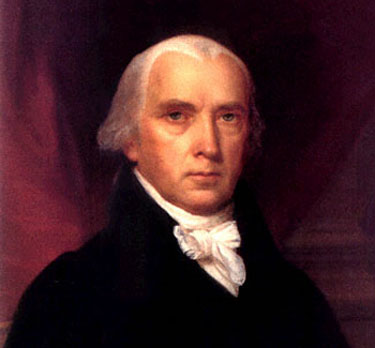Sunday, August 8, 2010
I didn't write this, my brother did. But it's worth reading.
I have been trying to find the video clip of an interview where he was challenged on the intrinsic safety of deep-water drilling. His response, paraphrased was that oil companies do deep-water drilling because they are not allowed to do the much safer shallow-water drilling. I believe there may be good reasons to not do shallow-water drilling, however – it never occurred to me that we had much more accessible, and safer to reach oil closer to shore. It was his statements that I could not readily place within my base-knowledge, either to affirm or deny that made me curious about his book as its title flashed beneath his name, night after night, during the oil spill.
In the book, Mr. Hofmeister builds the following case. First, a clean, post-industrial economy of the future will use more energy, not less than an old-line manufacturing economy. For example, “The comparatively low cost and plentiful supply of energy throughout the 1990s and the first years of the twenty-first century helped drive a low unemployment rate and a lifestyle of larger cars, commuting to larger houses, located farther from downtown employment centers or industrial areas.” (Amazon Kindle: 336) This is a key concept in his analysis. U.S. economic success and the standard of living of its citizenry is dependent on access to low-cost energy. Repeatedly in the book, he returns to the idea that high-cost, less reliable energy disproportionately punishes those with low-income, the working-class and the middle-class. In the information age, energy becomes more important, not less, he believes.
The former President of Shell Oil – America then begins to describe what he perceives to be the inability of our political institutions to develop sound energy policy and how recent history is replete with examples of that inability causing harm and misery to U.S. citizens at varying degrees. “The call for American energy independence was first made more than 35 years ago. At that time, we imported about one-third of our oil from other nations. After three and a half decades of repeated commitments by presidents, presidential candidates, and countless elected and appointed officials of both major parties at federal and state levels, after dozens of energy bills over the intervening years, through recessions and periods of heady economic growth and prosperity, by 2008 we imported two-thirds of our oil from other nations. Our reliance on foreign oil increased, not deceased.” (Amazon Kindle: 458-461) More importantly, he concludes that recent examples of energy disruption and temporary fuel price spikes are a foreshadowing of greater energy and economic troubles in the near, medium and long-term. He believes these interruptions and energy cost volatility will inevitably force the U.S. economy into a position in which it is unable to meet the reasonable expectations of our country’s citizenry and possible loss of our superpower status.
John Hofmeister spends significant portions of the book discussing the scale and enormity of our current energy infrastructure. One such example is as follows, “Americans use…10,000 gallons [of oil] per second.” (Amazon Kindle: 502-06) Or, “Nearly half of the electricity in the United States comes from coal-burning generating plants…we burn through a [train] car-load of coal every three seconds, 20 car-loads per minute, 1,200 per hour.” (Amazon Kindle: 624 – 630) As he compares this to alternative energy sources he resoundingly concludes, alternative energy sources cannot replace this behemoth fast enough to avoid unprecedented economic distress. “[W]e can’t just turn it off. In an electron society, we couldn’t run our hospitals, banks, companies, households, governments, schools, and public safety without it. For these reasons, it is naïve and dangerous simply to argue for no more coal.” (Amazon Kindle 636)
Why have we failed in nearly forty-years to fix our energy dependence or secure long-term energy access? The former Big Oil executive lists four reasons: incompatible and misinformed beliefs of the right and the left on energy and the environment; incompatible time scales for development of energy and implementation of energy policy compared to election cycles; infighting between different energy industries such as coal vs. nuclear or natural gas versus wind and solar as each sub-industry uses their influence with their constituents, stakeholders and their beholden politicians, and finally; the NIMBY or “not in my back yard” syndrome. All of these items form a nexus where elected politicians make decisions or direct regulatory agencies. This leads to policy incoherence and a related reduction in energy production, refinement and transmission infrastructure development that leaves America vulnerable to unpredictable but expected events. Hurricanes, summer heat, Middle-Eastern geo-political turmoil all will produce disruption. America’s dependence on Gulf Oil, OPEC Oil, inability to build new nuclear plants, unwillingness to invest in new coal plants or build new refineries makes us dependent on an unnecessary few number of energy sources all with unique risks and vulnerabilities.
The former oil executive is also the CEO of Citizens for Affordable Energy, Inc. He strongly advocates for alternative energy in his book, but consistently makes the case that changes in policy, unrealistic time frames and misunderstanding of the scale of energy use, as well as vituperative banter by ideologues prevent the development and implementation of new technologies in a rational manner. (The subtitle on one chapter says, “Put in charge of energy, the right wing will destroy the earth; the left wing will destroy our society.”) He does have some of his own venom for corn-based bio-energy in the form of ethanol. He suggests that the cost and energy use in its production to be so high as to make it a nonsensical choice. After several paragraphs describing engine efficiency, difficulty in transporting the fuel, cost of production, etc., he concludes, ”All things considered, corn ethanol is a bad idea for everyone but the corn farmers.” (Amazon Kindle 868)
So, what is John Hofmeister’s solution? The formation of a regulatory body called the “Federal Energy Resources System” (FERS). Mr. Hofmeister spends considerable time discussing the Federal Reserve Bank and its relative success in managing our economy since the Great Depression. He suggests that the EPA and Energy departments be rolled together in it, that it be given enough authority to over-ride individual state objections to projects (such as Massachusetts’s opposition to a Wind Farm off the coasts of Nantucket and Martha’s Vineyard). He touts the length of time in which Federal Reserve governors serve (14 years) and the extension of the four-year terms of the Chair by presidents of opposing parties as proof of the bipartisan manner in which it operates.
When reading the book, and discussing it with my friends on the right and the left, their hostility was palpable. I found them trying to find labels that both belittled and appropriately placed the author of the book into a simple box. “He’s a shill for the oil industry. Maybe alternative fuels require enormous government subsidies, but traditional energy forms receive just as many. There is no proof that global warming is real, we're just at the tail end of the last ice age.” are examples of the many ad hoc criticisms I received while discussing this book. I do not have an opinion about FERS. Mr. Hofmeister made a compelling case that he believed in global warming, protecting the environment and that other fuel sources besides oil could serve America’s energy needs well. He equally strongly made the case that America was vulnerable and that low-cost and stable energy were a necessary part of our super power status and the wellbeing of our citizenry in the future and that elimination of hydrocarbons, desirable as it is could cause havoc on our well being.
Why do we hate the oil companies? John Hofmeister believes that their shortsighted management has made them easy targets to the passionate, if incoherent politics that is part of our time. They are a scapegoat and have come to symbolize 40 years of failed energy policy, as well as the center of the populace’s anxiety every time gasoline prices spike, or there are power outages during the summer heat. He makes a strong case that we are in trouble and things may get worse. His solution to the problem is less compelling to me. I enjoyed what I learned by reading the book but I did find it depressing. Hopefully, I am moderately better informed.
Thursday, July 22, 2010
The Fallacy of Strict Constructionism
This doctrine is based on a number of fallacies, the most important of which is the assumption that the Constitution was ever intended to be some sort of "sacred writ" immune from interpretation.
The Constitution was (and remains) an explicitly POLITICAL document, in that it was written as it was with the intent of garnering sufficient political support to insure its ratification. When the Framers couldn't garner enough consensus in their ranks regarding a particular topic, they had recourse to a heirarchy of tactics in writing text that was acceptable to a sufficient number of delegates.
As a first resort, they would compromise. We see this in "the great compromise" which resulted in the creation of a bicameral legislature. We also see it in the frequently misunderstood 3/5ths compromise.
However, the Framers frequently couldn't compromise, either. In such cases, they would intentionally leave the language of the Constitution vague. An example of this intentional vagary can be seen in the tension between the President's role as "Commander in Chief" and the enumerated powers of Congress over the military. The "plain language" of Article I gives control of the military budget to Congress. However, the "plain language" of Article II makes the President the final authority regarding military operations. Can Congress prevent a military operation by refusing to fund it? Can the President order a military operation without obtaining a Congressional appropriation?
We don't know what the Framers thought about this, because the "Framers" disagreed on the subject. The "original intent" of the Framers was different from faction to faction. Consequently, the determination of these questions has been left to 1) the Supreme Court, which has frequently refused to intervene in disputes between the other two branches and 2) established precedent. In the example of military authority, the relevant precedent was set by Theodore Roosevelt. When Congress refused to appropriate money to send "The Great White Fleet" on a show-the-flag tour of the world, Roosevelt ordered them to sail halfway round the world. Congress then had to appropriate enough money to get the fleet back to the United States, completing the circumnavigation. 3) Clarifying legislation, such as the War Powers Act, which every subsequent President has insisted is unconstitutional.
On certain issues, the Framers couldn't compromise, and neither side would tolerate vague language regarding the issue. In such cases, the Framers would insert both mutually contradictory directives in the Constitution, so that each side could point to a particular provision and claim victory. The best known example of this is the flatly irreconcilable vision of Federal power made in the "necessary and proper" clause in Article I, Section 8, and the 10th Amendment.
In cases where the Framers deliberately tried to have it both ways, the Supreme Court has been stuck trying to untangle the mess. The best example of this is the case of McCullough v. Maryland, where the Supreme Court explicitly rejected the idea that Congress was limited to those powers explicitly granted to it in Article I section 8, (with all other powers being reserved to the States) and instead embraced a more expansive view of Federal power based on the idea of "implied powers", i.e. powers the Feds can safely be assumed to have simply because governance is impossible without them. Subsequent Supreme Court decisions have extended and reinforced this view, and constitute a complete refutation (refudiation?) of the central tenet of the Tea Bagger view of Federal power.
Finally, when the Framers couldn't compromise, couldn't fudge, couldn't agree to have it both ways...
they simply ignored the issue. The best example of this is the question of slavery, both in new states and in the free states. This particular tactic lead us into the Civil War.
Another hole in the strict constructionist view of the Constitution is the fact that the Framers themselves explicitly repudiated the doctrine. James Madison refused to make his notes from the Constitutional Convention public for two decades, because he didn't want them being used to determine "original intent" in interpreting the Constitution. George Washington didn't believe the Constitution would remain in effect more than 20 years or so. And Thomas Jefferson (more properly viewed as a "Founding Father" than as a "Framer" explicitly disavowed the original intent doctrine in a letter he wrote to Madison in 1789, in which he asserted "...the earth belongs in usufruct to the living: that the dead have neither rights nor powers over it."
Any appeal to the original intent of the framers is contrary to the original intent of the Framers.
Conservatives will object to my arguments on the basis of "consequence" (or, the fallacy of the slippery slope). If the meaning of the Constitution is open to interpretation, what keeps any potential tyrant from deciding the Constitution allows him to become dictator?
The answer is obvious. It is not the responsibility of dead men to protect us from tyranny, it is our own responsibility. The dead men have given us the best possible guidance in doing so, but that guidance consists of hints, general principles and precedent. They have not given us a sacred document that must be read according to the "jot and tittle" standard applied by crazy fundamentalists to the Bible.
Finally, the whole notion of judicial conservatism is merely a political slogan designed to delegitimize progressive judicial decisions. Conservative jurists are every bit as activist as liberal jurists, as is shown by the Supreme Court's recent decisions in Citizens United and the lifting of Chicago's gun ban.
When you overturn 200 years of stare decisis, you're a fucking activist.
Tuesday, June 29, 2010
The illegal immigration debate.
I start with the postulate that the only legitimate function of government is to promote the welfare of its citizens. This is something at which they typically fail, but in my view it's the only thing they ought to be doing.
If this is the case, then our immigration policy should be clear. We should only admit those immigrants likely to enhance the general prosperity of our economy. That would seem to consist of workers currently being admitted as temporary workers under H1 visas. If we can get them to stay, we should. They tend to be highly paid, and by definition they have skill sets for which there's constant demand, even in this economy. The argument has been made that this has the effect of depressing wages in the nursing and tech industries. By and large, I'm willing to allow that, as providing a more generalized benefit to the country than the cost it exacts from a subgroup of the nation's citizens. I think the health of the whole country suffers when there's a nursing shortage.
Monday, June 21, 2010
There's no justice...
I loved it at the time, and seeing it again reminds me of it's brilliance. Some things I loved at the time (Hill Street Blues, Babylon 5) don't hold up well. I don't know if I've changed or the times have changed. I do know that Highlander is now unwatchable. I can't believe that Christopher Lambert is dating Sophie Marceau. In fact, I see it as evidence of some sort of nefarious conspiracy...
Thursday, June 10, 2010
Media Goofiness...
Sunday, May 30, 2010
This is going to sound intensely weird...
Wednesday, May 26, 2010
Now this guy's a leader...
and without a doubt the greatest President of my lifetime so far (I remain ever hopeful).
Can you imagine George W. Bush doing this? Did Reagan ever do this?
A persistent label the Republicans have tried to pin on Obama is "weak". But he walked into a room full of his most bitter political enemies, and went eye-to-eye with them for 75 minutes.
The Republicans know perfectly well that they don't have anyone in the Congressional Party who can match Obama fact for fact. They don't have anyone who can match his charisma.
That's why there were no cameras at this event; Obama is better on camera than any of them. They got their clocks cleaned at the healthcare summit, their State of the Union responses were pitiful...
and of course, Obama has the objective truth on his side. That's a tough headwind.
I suppose it's possible to disagree with this President on policy. Inflation concerns are understandable, if misguided at this point in the business cycle. I'd be happier with a bigger budget for NASA..
But this President has killed more terrorists than Bush, inherited an uglier economy than did Reagan, convinced Pakistan to take aggressive action against the Taliban and risked the ire of an important constituency by pushing Israel on the settlement issue.
The Republicans should at least give him credit for having balls.
Wednesday, May 19, 2010
Not a word...
still, it might force Limbaugh to work a little harder. The portion of his program I heard yesterday was an almost word for word rip-off of Beck's program from two days ago. Rush may have ratings envy. Rush did go off the Beck script when the headline came across the wire that Germany had banned naked short selling; he immediately started screaming about European Socialists strangling efficient capital markets with their claw fingered regulations, and then attempted to explain to his listeners precisely what was meant by "naked short selling"...
only to stumble to a halt when he realized he had no idea what it meant. After a quick commercial, he came back on with an accurate explanation of what it meant, kind of half-conceded that maybe this wasn't a catastrophe after all, and quickly got back on script.
The "conventional wisdom" has been that the country is experiencing an anti-Obama backlash. The supporting evidence has been poorly attended tea-bagger rallies and Scott Brown's win in Massachusetts, combined with polling data gleaned from a population so disinterested that the views they "express" to a pollster will change with the first contradictory nudge....
ROTFLMAO.....
Beck has apparently written a novel, about a 100 year old plot to destroy America. I wonder where he got the idea?
Anyway...
any discussion of the "mood" of the country can be dismissed. The country has no mood, except for economic anxiety. We can safely dismiss any polling data involving the fall elections until September, at the earliest. Apocalyptic claims about Republicans retaking the House may indeed turn out to be accurate, but they are equally likely to prove wrong. The determining factor in the fall elections is going to be the health of the economy, with secondary factors like money, organization and local issues explaining the rest of the result.
The only conclusion that can be drawn from last night's results is that it might not have been a good idea for the RCCC to drop a million bucks on the PA 12th, where there's a 2 to 1 registration advantage for the Democrats. And even that conclusion is tentative...
the same candidates are going to face off in the fall.
Monday, May 17, 2010
Anyone else notice...
that Napolitano is taking the point on this oil spill? I guess it makes sense not to highlight Salazar, his environmental record's what you'd expect from a Westerner. But I'm surprised not to have seen more of Lisa Jackson.
in reference to:"US President Barack Obama will set up a commission to investigate the oil spill in the Gulf of Mexico, officials say."
- BBC News - US President Barack Obama to set up oil spill panel (view on Google Sidewiki)
Sunday, May 16, 2010
In case I wasn't clear...
"Capitalism", as practiced in the United States, and most of the developed world is fundamentally corrupt at its core. Its successful practitioners almost invariably lie, deceive, mislead, misrepresent, bully, threaten (both tacitly and explicitly), bribe and steal.
The above behaviors are carried out, over and over again, in the course of daily business. It is done as part of routine business operations, and it takes place as part of dominance behaviors having nothing to do with business operations. This behavior is carried out by a particular subculture to whom we may refer as "Commercial Elites". The behavior itself is a form of coercion, in that it leverages asymmetries in power between parties in a transaction in such a way as to cause the weaker party to act in ways it would not otherwise have acted. Such coercion may take the form of a bribe rather than a threat.
Commercial Elites are no more innately evil than any other identifiable subgroup of our species. But they have "power", in the sense that they can impel behavior in others that would not otherwise be present. And, like any other group of human beings with power, they use that power to influence what we are told are purely "market" transactions.
Every elite will promulgate an ideology (often a religion) that legitimates both their greater power and the use of that power to further their own interests. Commercial Elites promote a particular type of Capitalism that is excessively deferential to those elites, that exalts its practitioners to the status of heroes, and that defends the privileged position of Commercial Elites by predicting catastrophic economic consequences should their behavior be moderated.
It has been said so often that it is a cliché; the "market" is a purely intellectual construct, an abstraction employed because of its utility both descriptively and predictively...
and then, having covered their intellectual asses, the Capitalism Apologists promptly reify the market, citing the "efficiency" of an admitted intellectual abstraction in defending existing supply and pricing arrangements. But those existing arrangements are not typically arrived at through the beautifully meshed operations of supply and demand mediated by price. So-called market outcomes are primarily the result of power differences between the parties in an transaction.
the extent of American prosperity is massively overstated. And Americans cannot internalize that fact beyond a vague anxiety about their personal circumstances.. We are not the
richest country in the world. We don't have the best healthcare in the world (if by "we" you mean most Americans). We don't have the most leisure time in the world. We don't have the best education system in the world. We are a top 10 country, not number 1. But if you can convince people that we are number 1 because of an almost religiously fundamentalist devotion to practicing economic activity in a way that defers to your personal interests....
that turns out to be an effective tactic.
American prosperity is not due to "Capitalism". (Again, as it's practiced here.) American prosperity, such as it is, is a complex phenomenon. Like all complex phenomena, it is multi-causal and changes over time. But here's a striking relationship... the public policies advocated by Capitalism apologists don't seem to have resulted in greater prosperity for the American people, despite their promises.
It is claimed that Capitalism takes advantage of the particular expertise of private industry, but in fact, our so-called "Captains of Industry" are no more competent (just as they are no less moral) than any other subset of humanity. There are smart business people, and there are business people that are astonishingly dumb, in about the same proportion you'd find among teachers, or cops, or government bureaucrats. Furthermore, the relationship between competence and ultimate success is tenuous at best.
The benefits which derive from American Capitalism have been grossly exaggerated. The economic and social costs of regulating the behavior of Commercial Elites has been exaggerated even more.
Commercial Elites will ruthlessly exploit those with whom they do business to the extent that the existing regulatory environment allows them to do so. As it is presently constituted, the regulatory environment of the United States fails to deter coercive business practices, including practices blatantly illegal under current law.
Increasing regulatory restraint on Corporate Management will not make us poor. It's not anathema to the principles of the Founding Fathers. And it's the only defense we have against our rapacious exploitation by a privileged, hypocritical elite.
It occurs to me that I still haven't watched "Capitalism, a Love Story" by Michael Moore. I think it's on pay-per-view...
certainly, the Penguins don't have any games scheduled.
Sunday, May 9, 2010
I like this guy....
I was sorry that Obama kept him on, at the time. I thought it played to the public perception that Republicans were somehow more competent on defense issues. Gates has been a terrific advocate for Obama's policies, though.
in reference to:"Among Gates's apparent targets for major cuts are the private contractors the Pentagon has hired in large numbers over the past decade to take on administrative tasks that the military used to handle. The defense secretary estimated that this portion of the Pentagon budget has grown by as much as $23 billion, a figure that does not include the tens of billions of dollars spent on private firms supporting U.S. troops in Afghanistan and Iraq."
- iGoogle (view on Google Sidewiki)
Saturday, May 8, 2010
Archetypes
it's breath-taking. My brother recently started reading H.P. Lovecraft's Cthulhu stuff. I'll be interested to see what he thinks of it; Lovecraft's prose isn't simply archaic, it's downright bad. Worse than Poe. But like Poe, Lovecraft's imagery positively grabs you by the throat...
Friday, April 30, 2010
Playoffs, Round 2
Friday, April 23, 2010
PA Senate Primary
Thursday, April 22, 2010
This is a big fucking deal.
Hypersonic heavy payload cruise missiles...
I don't see how you defend troop formations from these things.
Hypervelocity AA defense artillery, maybe. Or do it the North Korean way...
put a nuclear warhead on a yacht and leave it parked in Los Angeles harbor till you want it.
"It would travel through the atmosphere at several times the speed of sound,"
- U.S. Push for New Class of Weapons Alarms Russia - NYTimes.com (view on Google Sidewiki)
Monday, April 19, 2010
There's more to this story...
"Both men were found in a hole?"
A bomb crater? A "spider hole" like the one in which Saadam was hiding? A convenient declivity where retreating insurgents ditched the bodies?
I notice that the Odierno quote is uninformative, too. I wonder if the full text is somewhere...
in any case, "Al Qaeda in Iraq" is no longer the problem. The problem is thousands of angry Sunnis who are not being paid the money they were promised when they flipped to our side.
The United States made promises on behalf of the Maliki government to those men, and the Maliki government has not only failed to fulfill those promises, it has systematically harassed, arrested and disarmed the "Awakening Councils."
My hope is that the new coalition government will include some Sunni parties. That won't stop the former Baathists (probably responsible for the horrible execution of prominent Sunnis a couple weeks ago) but it will prevent the kind of sectarian bloodbath we saw through 2007.
"Mission Accomplished"
"Bring 'em on!"
My God, will that ever stop sticking in my throat.
"Both men were found in a hole in the ground. “The security forces surrounded the hole, and when they got them out they were dead,” Mr. Maliki said at the news conference. Mr. Maliki said computers and letters were found that included communication between the men and Osama bin Laden."
- Top Qaeda Leaders in Iraq Killed in Raid - NYTimes.com (view on Google Sidewiki)



































